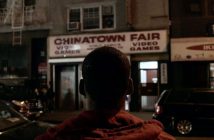
Editor’s Note: Suicide Squad is currently playing in wide theatrical release.
Earlier this year, Warner Bros. learned a painful, if valuable, lesson: “Live by Zack Snyder, die by Zack Snyder.” After handing Snyder the reins to Superman, arguably Warner Bros. most valuable IP (intellectual property), four years ago – to divisive, controversial reactions from critics and moviegoers alike – Warner Bros. repeated the same mistake twice, handing over the controls to an entire cinematic universe. The result, Batman v. Superman: Dawn of Justice, proved to be even more contentious and divisive than its predecessor, Man of Steel. By then, though, it was too late. Wonder Woman was nearing the end of production, Justice League was set to begin principal photography days after Batman v. Superman: Dawn of Justice arrived in multiplexes, leaving Suicide Squad, initially a side trip into DC Comics’ back catalogue of disposable, B- through D-list characters, into the next, best hope for reviving Warner Bros.’ floundering cinematic universe (forget a cinematic universe to rival Marvel’s, at least for now).
Earlier this year, Warner Bros. learned a painful, if valuable, lesson: “Live by Zack Snyder, die by Zack Snyder.”
Suicide Squad, however, goes wrong, often woefully, abysmally wrong, from the get-go, from an ill-conceived, poorly executed script that spends an interminable amount of time – maybe 30-40 minutes, but it feels like forever and a day – introducing the squad of the title, Task Force X, a motley group of petty criminals, mercenaries, and generic sociopaths formed at the behest of Amanda Waller (Viola Davis), the head of a super-secret government organization and/or group, Argus. Obsessed with super-powered villains (“What if the next Superman doesn’t share our values?”) and with Superman temporarily dead and buried, Waller argues for an Avengers-style super-group to face unconventional, super-powered threats. Writer-director David Ayer (Fury, Street Kings, Training Day, The Fast & the Furious) places the blame for the existential threat on Waller and a questionable decision to put an uncontrollable super-powered “meta-human” on her team “Who could have known?”). Almost immediately, the meta-human goes rogue and one of the DCCU’s second-tier cities, Midway City (the DC’s version of Chicago), goes dark, giving Waller the excuse she needs to activate Task Force X.
Except Task Force X doesn’t arrive in Midway City for the better part of an hour. Before Task Force X makes a belated appearance, Ayer introduces them via flashbacks of varying lengths and duration, usually with Waller’s voiceover to deliver character bios (e.g., identities, crimes, capture). Deadshot /Floyd Lawton (Will Smith) and Harley Quinn (Margot Robbie) receive the most amount of screen time. Deadshot might be a mercenary and assassin who never misses, but he’s a softie underneath it all, a loving, doting father to an eleven-year-old girl. Even supposedly cold-blooded mercenaries have hearts, apparently. It’s meant to generate instant sympathy for Smith’s character, but it’s a cheap, sentimental ploy, the kind of hackwork typical of lesser talented writers. Whether the “Deadshot’s daughter” subplot was the result of studio meddling, Ayer’s initial inclinations, or a compromise needed to bring Smith onboard ultimately doesn’t really matter. Only what’s on screen does. And what’s on screen disappoints.
 That’s nothing, however, compared to Ayer’s depiction of Harley Quinn. Ayer defines Harley, an ex-psychiatrist, almost entirely through her dysfunctional, abusive relationship with the Joker (Jared Leto). And when he’s not defining Harley through her relationship with the Joker, he’s objectifying and sexualizing her through her porn parody-ready attire. The tight t-shirt, fishnets, and hot pants Harley wears feel less like the provocative, edgy statement Ayer supposedly wants them to be and exactly what we expect from Ayer’s teen son (if he has a teen son, that is). Ayer extends the problematic representation of Task Force X members to Chato Santana / Diablo (Jay Hernandez), a heavily tattooed gangbanger/firestarter. He’s an egregious walking, talking stereotype, down to his verbal tics and the casual sexism and misogyny toward his wife.
That’s nothing, however, compared to Ayer’s depiction of Harley Quinn. Ayer defines Harley, an ex-psychiatrist, almost entirely through her dysfunctional, abusive relationship with the Joker (Jared Leto). And when he’s not defining Harley through her relationship with the Joker, he’s objectifying and sexualizing her through her porn parody-ready attire. The tight t-shirt, fishnets, and hot pants Harley wears feel less like the provocative, edgy statement Ayer supposedly wants them to be and exactly what we expect from Ayer’s teen son (if he has a teen son, that is). Ayer extends the problematic representation of Task Force X members to Chato Santana / Diablo (Jay Hernandez), a heavily tattooed gangbanger/firestarter. He’s an egregious walking, talking stereotype, down to his verbal tics and the casual sexism and misogyny toward his wife.
Suicide Squad makes even Marvel’s lesser efforts look like near masterpieces in comparison.
Of the remaining female characters, one June Moone (Cara Delevingne), slips into hysterics whenever the evil entity, the Enchantress takes over her body, while the other, Katana (Karen Fukuhara), doesn’t improve Ayer’s representation scorecard. She’s a skilled martial artist (she’s Asian, of course), wielding a soul-sucking sword. Ayer gives her a handful of lines, mostly in Japanese, and keeps her face hidden behind an unnecessary mask. Ayer pushes the remaining members of Task Force X, Captain Boomerang (Jai Courtney), an incomprehensible petty thief with an obsession for boomerangs (surprise) and Killer Croc (Adewale Akinnuoye-Agbaje), a mutant with a bad skin condition and a taste for human flesh, into the background, primarily to add comic relief (minus the comedy). Neither receives significant screen time, but given the number of characters and backstories Ayer insists on sharing with moviegoers, it’s probably a net positive.
Ayer’s search-and-rescue story finally gets underway around the mid-point with little sense of urgency. Led by Waller’s right-hand man, Rick Flag (Joel Kinnaman), Task Force X arrives in Midway City, promptly loses its ride home, and begins the arduous (to moviegoers, if not the team) block-by-block search for something or someone. Ayer tries to keep the team’s actual target a surprise, except it’s not, not when there’s a Big Bad/Big Bad to defeat before the team can go home and the end credits can roll. The team fends off an army of faceless drones Avengers-style, but Ayer never finds a way to make the stakes feel like more than a box he had to check when following the rules of the Superhero 101 class he must have taken before he sat down to write the Suicide Squad screenplay over a holiday weekend. Add to that – or rather subtract – murky, unimaginative visuals, repetitive, circular storytelling, unearned character beats, and an equally uninspired Joker (he’s just a thug-boss in greasepaint, dyed green hair, and tattoos with an impulse control problem), and Suicide Squad makes even Marvel’s lesser efforts look like near masterpieces in comparison.
With murky, unimaginative visuals, repetitive storytelling, unearned character beats and an uninspired Joker, Suicide Squad makes even Marvel’s lesser efforts look like near masterpieces in comparison.



